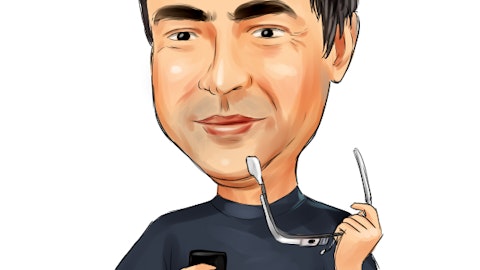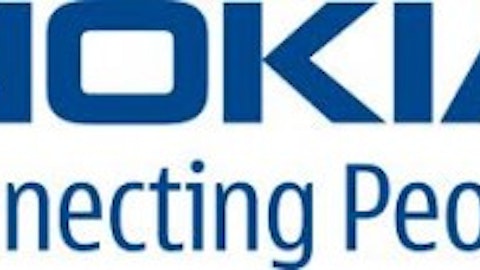When it comes to shelf life, social networks tend to mirror hit sitcoms. AOL, Inc. (NYSE:AOL), Geocities and MySpace all experienced parabolic growth and suffered equally swift declines, as users abandoned ship for the next killer app. In Facebook Inc (NASDAQ:FB)‘s case, what was once exciting and engaging — catching up with old friends — has devolved into a kind of school/family reunion that never ends. There’s the constant risk of boredom, which could make users feel logging in isn’t worth the hassle.
In real life, social motivation is limited to a) increasing your visibility so you can increase your number of trusted friends, and b) communicating more with the people you know and trust already. But communication and trust take time, of which users only have a limited amount. The more new contacts you have, the less time you have to interact with both them and your old contacts at the same time. And when’s the last time you went on Facebook Inc (NASDAQ:FB) to meet someone new?

John Batelle, co-founder of Wired magazine, summed the situation up thus:
First and foremost, Facebook Inc (NASDAQ:FB) has an engagement problem, particularly in markets (like the US) where its use has become ubiquitous and many of its original users are two, three or more years into the “Facebook habit.” While the company doesn’t talk about this issue, I am confident it’s real (in private conversations with people at Facebook Inc (NASDAQ:FB), it’s called the “set it up and forget it” problem).
Enter Graph Search. Graph Search functions as a reason to participate, a motivator. When you run a Graph Search for friends of yours that like a new movie in order to generate a short list for Friday night festivities, it reminds you to remember to “Like” that movie’s Facebook page, too. Graph Search is Facebook Inc (NASDAQ:FB)’s attempt to regenerate the network effect: the more you participate, the more useful it is, and leading you to participate more.
It’s not the documents; it’s what they’re about
Graph Search allows you to combine natural-language phrases like “People who like bowling and live nearby,” “Italian restaurants in Queens my friends like,” “Photos of all my friends from Atlanta,” and “My friends in Los Angeles who like punk rock.”
Graph Search then returns the relevant results based upon the collective preferences and real-world experiences that your friends have shared on Facebook Inc (NASDAQ:FB). According to Mark Zuckerberg, “People use search engines to answer questions, but we can answer a set of questions that no one else can really answer. All those other services are indexing primarily public information, and stuff in Facebook isn’t out there in the world — it’s stuff that people share.”
Google Inc (NASDAQ:GOOG) killer?
This search strategy naturally plays to the strengths inherent in a social network. Facebook Inc (NASDAQ:FB) processes 2.7 billion “Likes” every day, along 300 million photos. That in and of itself is an explicit threat to Google , the world’s most renowned “Big Data” centric company. Google’s self-proclaimed mission is to “organize the world’s information,” but you can’t index what you can’t access.
Not everyone thinks that Social Graph is a big deal. Nate Elliott from Forrester Research dismissed the notion that social search would be a game changer, saying:
[I]t’s still just site search. The big news isn’t that Facebook Inc (NASDAQ:FB) has fixed its search tool; the big news is that it didn’t do this long ago. … Will this feature go head-to-head with Google? I seriously doubt it; the two indexes contain entirely different kinds of information. Will it compete with Yelp or TripAdvisor? Again, unlikely; when was the last time you posted a full-paragraph review and a star rating of a restaurant or hotel on Facebook?
Elliot is missing the forest for the trees. Social Search doesn’t have to compete head on with Google Search; it can attack Google (and Google Plus) obliquely simply by increasing user engagement. In today’s hyper-stimulated world, user time and attention are scarce commodities. There are only so many hours the average user can devote to any one site or service, no matter how efficient or helpful. The more time that Facebook Inc (NASDAQ:FB) users spend within the social network’s proprietary ecosystem, the less time they will have to spend on Google.
Get scared, Google
In this Fool’s opinion, Google’s engineers should not only be worried about Social Graph, they should be pulling their hair out by the roots. Whether or not Social Graph will cut into Google’s core search business is almost besides the point. For Google Plus, Social Graph is a disaster.
After the world’s most hyped IPO turned out to be a dunce, most investors probably don’t even want to think about shares of Facebook Inc (NASDAQ:FB). But there are things every investor needs to know about this company. We’ve outlined them in our newest premium research report. There’s a lot more to Facebook than meets the eye, so read up on whether there is anything to “like” about it today, and we’ll tell you whether we think Facebook Inc (NASDAQ:FB) deserves a place in your portfolio. Access your report by clicking here.
The article Facebook’s Social Graph Is a Google Plus Killer originally appeared on Fool.com.
Fool contributor Kyle Spencer has no position in any stocks mentioned. The Motley Fool recommends Facebook and Google. The Motley Fool owns shares of Facebook and Google.
Copyright © 1995 – 2013 The Motley Fool, LLC. All rights reserved. The Motley Fool has a disclosure policy.





